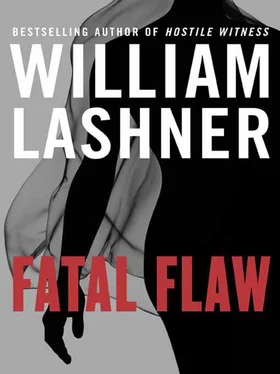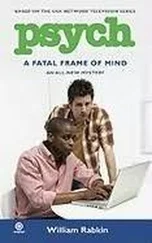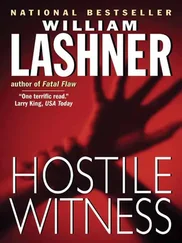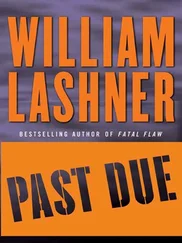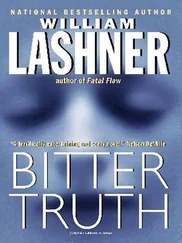“And who else has the number?”
“Just me.”
“So it’s our own private hot line.”
“That’s right.”
“I feel like the president.”
“And best of all, my number is already number one in the speed dial.”
“For now.” She laughs, her hearty, throaty laugh, but I can tell she likes the gift even though she can’t hang it from her ears, I can tell because after she laughs she starts devouring my mouth the way she does when it is time to end our talking, hungrily, meatily, in a way that still tingled even as I remembered two days after her death.
“THAT THINGyou were waiting for?” said my secretary, sticking her head in my office door. “Is it from the phone company?”
“Yes,” I said, with more excitement than I meant to show. To cover myself I added, “Thanks, Ellie. Just put it on the chair and I’ll get to it when I can.”
She laid the paper on the seat, closed the door, and I leaped out from behind my desk to get my hands on the three stapled sheets.
I started at the last page, the last call. It was registered at 10:15 the night of Hailey’s death, made to my number. It was Guy, telling me that something horrible had happened. Guy. Why had he used the cell phone to make the call?
I sat down hard on the chair and thought it through. It made no sense. No sense, and that might be the only explanation. So undone by his murderous act, he picked up the first thing he could grab, the bright red phone, left out on the end table by Hailey for some reason. Picked it over the regular phone for no special reason, picked it up and dialed my number and made the call. He didn’t even remember that he had used the cell phone, hadn’t mentioned it when he told me the story, would probably swear he had used the regular phone, but he was mistaken, and here was the proof. It was a simple enough explanation, and it would certainly calm Detective Breger’s concerns, and so all I had to do was give him the fax.
Except I couldn’t. Because then I’d have to explain why a phone registered in my name, with the bills going to my home, was in that house the night of the murder. And I’d have to explain all the calls made to my number, and all the calls registered going from my number to that phone, all also listed and on the record. And with that explanation I’d surely be off the case as an attorney. Off the case as an attorney, yes, but still on as a witness or, more precisely, as a suspect. Ah, there it was, the foul root of the problem. If Guy’s unthinking, nonsensical act was discovered, I’d be a suspect. I’d be a suspect that could be used by any competent defense attorney to raise doubt, maybe even reasonable doubt. Wasn’t it I who was having a deceitful relationship with the deceased? Wasn’t it I who had possession of the gun until I dropped it in the laps of the police? Wasn’t it I who had lied about everything so that I could stay on the case as defense attorney to lay blame at the feet of the innocent Guy Forrest? The closing as much as wrote itself. How ironic that I might, in the end, be Guy’s route to freedom. What I held in my hand was reasonable doubt as to Guy’s guilt, except I knew I didn’t do it, and I knew Guy did, and so I had to be sure that no one, no one, would ever be able to see this record.
I’d have to burn it.
I opened my office window and took an old pack of matches out of my desk drawer. Just a little fire, nothing to set off the sprinklers, I hoped, just a little fire. I lit a match. A breath of wind came through the window and killed it. I lit another and placed the flame at the document’s corner. Just as it was catching, just as the blue flame turned yellow and began to curl the three pieces of paper, I noticed something.
I tried to blow out the flame, but it grew and began to devour the pages. I dropped them to the floor and stamped, stamped, stamped out the fire. The office smelled like a cigar bar. I picked up the now blackened documents. Half of each sheet was gone, on the other halves the printing could barely be discerned. But barely was enough.
There were calls on the phone made to two strange numbers. Calls made every other afternoon or so. To a number in area code 304 and then to a number in area code 702. I grabbed my phone book. Area code 304 was West Virginia, Hailey’s home state. That made sense, calls to family or an old friend. But what about the number in the other area code. 702. Nevada. Who was she calling in Nevada?
“Desert Winds, how can I direct your call?”
“Desert Winds?” I said into the phone. “What exactly is Desert Winds?”
“Desert Winds is a full-care retirement community in Henderson, Nevada, just minutes outside exciting Las Vegas. Are you interested in a brochure? I could direct your call to Sales.”
“No, not quite yet. Do the residents have phones in their rooms?”
“Of course. Do you know the member’s extension?”
“No, I’m sorry. I’m calling about a woman named Hailey Prouix. P-r-o-u-i-x.”
“One moment while I check, please. No, I’m sorry, there is no member by that name.”
“Member?”
“At Desert Winds we treat all our guests as if they are members of a very exclusive club.”
“Are there any members named Prouix?”
“No, not currently.”
“Okay, thank you.”
“Are you sure I can’t direct you to Sales?”
“Do you have shuffleboard?”
“Oh, yes, tournaments and everything.”
“Well, in that case, maybe a brochure would be just the thing.”
BERWYN ISthe story of American sprawl writ across a rolling suburban landscape. At first it was farm county, supplying the big city with its corn and tomatoes. But early in the nineteenth century a few grand estates were carved out by the aristocratic wealthy as necessary places of refuge from the hurly-burly hoi polloi of the city. Of course the estates needed staff, staff that lived in the city, so the railroad, coincidentally owned by those with just such estates, built a train line to ferry the staff back and forth from their meager urban dwellings. It was the railroad that serviced these estates that became known as the Main Line, a name that soon came to designate the entire area. But the raw plow of progress always follows transportation, and it wasn’t long before developers began to sell neat little houses not far from the stations, promising easy train commutes to the city. As the years went on, the suburban outcroppings grew, some would say metastasized, spreading outward, invading farmland like a heartless disease, until only the original great estates were left intact. But who anymore could afford to maintain an eighty-acre estate in the middle of the ’burbs? One by one the estates were sold, subdivided, developed, and turned into the very creatures they had spawned, but with a difference. No typical suburban split-levels were to be built upon these blue-blooded grounds. It was as if their aristocratic origins infected the new developments, and what was created instead were strange imitations of the great manor houses, with falsely majestic fronts and grotesquely shaped wings all out of proportion to their three-quarter-acre lots.
Welcome to the Brontë Estates, luxury homes starting in the low $800,000s. McMansions for those whose aspirations had outlived their times. The American dream on steroids.
I remember when the Forrests first moved into their new house in the Brontë Estates, showing off the seven thousand square feet of luxurious, state-of-the-art suburban space. The ground was still packed hard from the heavy vehicles, the land barren of all but the youngest, barest twigs planted by the developers, most lots were still construction sites, but Leila and Guy were proud as new parents. They had chosen the Heathcliff model, with the extra bedroom, the cathedral ceilings, the oversize great room, the atmosphere of continual yearning. A house, they said, to grow into. Leila talked of all her decorating ideas, and Guy fiddled with the new lawn mower, though his sod lawn had yet to be laid. They had lived in an apartment in the city until Leila had become pregnant with their second child, so they exuded that special glow of freshly minted suburbanites ensconced in a McMansion of their very own. The grass would arrive on a truck, the skinny trees would grow, how could the future be anything but lush?
Читать дальше
